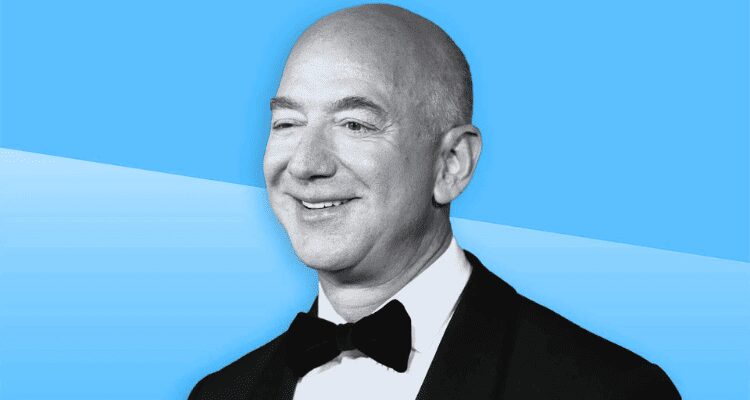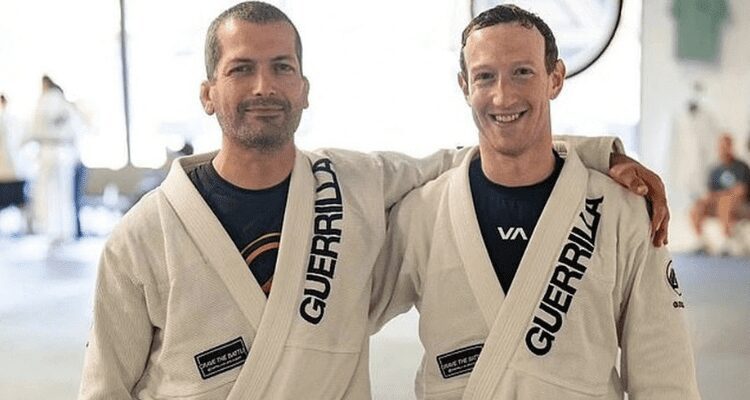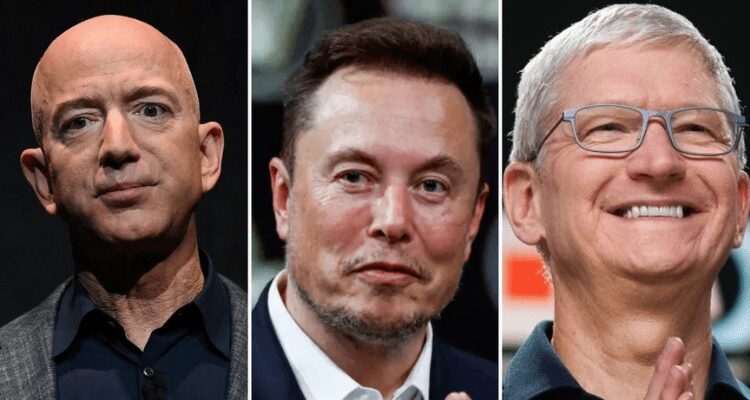Beneath the innovations, behind the fame and fortune, lies something far less glamorous yet equally powerful: Morning Habits.
Billionaire tech leaders like Tim Cook, Elon Musk, Jeff Bezos, Mark Zuckerberg, or Bill Gates understand that how you start your morning shapes the trajectory of your entire day.
And when compounded over years and decades, those mornings can create empires. Apple, Tesla, Amazon, Meta, and Microsoft have not only reshaped industries but also transformed the way billions of people live and work.
This blog post will take you on a deep dive into the morning habits of tech billionaires—their routines, philosophies, and practices—and explore what lessons we can learn and apply to our own lives.
If you’ve ever wondered how small, disciplined changes in your mornings could unlock greater focus, productivity, and clarity, this is the place to start.
Why Morning Habits Matter
Before diving into specific billionaire routines, let’s step back and ask: why mornings?
Research in neuroscience and psychology consistently shows that mornings set the tone for the rest of the day. Your brain, after sleep, is in its most refreshed state. Cortisol, the hormone that helps with alertness, peaks in the early morning hours. What you do with that energy can either prepare you for focus and success—or sabotage your productivity entirely.

For billionaires, whose schedules are filled with high-stakes decisions, leading global teams, and managing crises, the morning is often the only quiet, uninterrupted window. It’s during these hours that they sharpen their minds, nurture their bodies, and align their priorities.
In short: Morning habits are the launchpad for peak performance.
Tim Cook: Discipline Starts Before Dawn

The CEO of Apple is famous for waking up at 3:45 a.m. every day. While most of the world is still asleep, Cook has already begun his routine. His mornings revolve around three main pillars: communication, fitness, and focus.
Early Email Review: Tim Cook reportedly reads and responds to hundreds of emails from customers and employees first thing in the morning. This gives him a pulse on Apple’s ecosystem, from product feedback to internal concerns. Rather than starting the day reactive to headlines or crises, he actively seeks connection with real people. The lesson here is powerful: start your day by reconnecting with your purpose and the people you serve. Even if you’re not running Apple, taking 20 minutes to read customer feedback, check in with your team, or even reflect on your goals can keep you grounded.
Exercise: Cook is also a fitness enthusiast. After emails, he heads to the gym for an hour. This ensures that no matter how hectic the day gets, his physical health is maintained. Exercise not only keeps him fit but also sharpens focus and reduces stress.
Privacy Before the Storm: Those early hours give him space before the flood of meetings, decisions, and obligations. For Cook, mornings aren’t just about discipline; they’re about control—choosing how to start before the world dictates the rest.
Takeaway: Consider reclaiming part of your morning before external demands take over. Even if it’s 30 minutes earlier than usual, that time can become sacred space for your priorities.
Elon Musk: Tackling the Hardest Problems First

Elon Musk, the mind behind Tesla, SpaceX, and Neuralink, is not an early riser like Tim Cook. He usually wakes around 7 a.m. Yet his approach to mornings is equally strategic.
Skipping Breakfast, Going Straight to Work: Musk often skips breakfast (though he occasionally grabs coffee and an omelet). His philosophy is to dive directly into work while his mind is fresh.
Emails, But Only Critical Ones: Unlike Cook, Musk does not wade through hundreds of emails. He focuses only on urgent, mission-critical issues. He prioritizes communication that moves Tesla or SpaceX forward and ignores the rest.
Problem-Solving with Time Blocking: Musk uses time-blocking, a method where he divides his day into five-minute slots. His mornings are reserved for deep problem-solving, especially technical or engineering challenges. Instead of getting pulled into distractions, he attacks the hardest problems first while his brainpower is at its peak.
Takeaway: Start your morning by tackling your most important task—the one that will have the greatest impact. This isn’t about doing more things but doing the right thing first.
Jeff Bezos: High-Quality Decisions in the Morning

Jeff Bezos, the founder of Amazon and Blue Origin, is not a 4 a.m. riser either. But his approach to mornings is rooted in protecting his mental energy.
Slow, Thoughtful Mornings: Bezos wakes up naturally without an alarm clock. He spends time with family, drinks coffee, and eases into the day. This might seem lazy, but it reflects a deeper strategy: he knows his energy peaks in the morning and preserves it for meaningful work.
“High-Quality Decision” Rule: Bezos only makes about three important decisions a day, and he schedules those for the morning. His reasoning: cognitive fatigue builds up as the day goes on, and by afternoon, his decision-making ability weakens. By front-loading big decisions in the morning, he ensures they get his best mental state.
Takeaway: You don’t need to pack your mornings with endless tasks. Instead, focus on making your most important decisions when your mind is sharpest.
Bill Gates: Exercise + Continuous Learning

Bill Gates has always been a lifelong learner, and his mornings reflect that.
Treadmill and Learning: Gates starts his day on the treadmill while watching educational videos, often from “The Great Courses.” He uses exercise time as a dual investment in health and knowledge.
Prioritizing Growth: For Gates, mornings aren’t just about productivity but about growth—both physically and intellectually.
Takeaway: Consider pairing physical activity with learning. Podcasts, audiobooks, or lectures can turn exercise into a powerful two-for-one habit.
Mark Zuckerberg: Building Mental Resilience
Zuckerberg’s mornings are simple but intentional.
Consistent Routine: He’s famous for wearing the same type of clothing daily, eliminating trivial decision-making. This principle extends to his mornings: simplicity preserves mental energy.
Exercise and Martial Arts: Recently, Zuckerberg has taken up MMA and Jujitsu. His mornings often include training sessions, which he credits with improving his resilience, stress management, and focus.

Takeaway: Streamline your mornings to reduce decision fatigue and include practices that build resilience—not just fitness.
The Common Threads: What We Can Learn
While their routines differ, tech billionaires share some core principles in their morning habits:
Early starts or intentional starts: Whether it’s Cook’s 3:45 a.m. discipline or Bezos’ unhurried mornings, the point is to control the start of the day rather than letting it control you.
Exercise is non-negotiable: Nearly all prioritize physical health as a foundation for energy and focus.
Decision-making power is protected: They schedule important work for mornings when their minds are clearest.
Learning and growth matter: Gates, Musk, and others weave continuous learning into their mornings.
Focus on what matters most: Musk tackles engineering problems, Cook reads customer emails, Bezos makes strategic decisions—the key is aligning mornings with their mission.
How You Can Apply These Morning Habits
You don’t need to wake up at 3:45 a.m. or run a trillion-dollar company to benefit from these principles. Here are ways to apply them:
Wake up earlier—or wake up intentionally: Start with 30 minutes earlier and use that time for something meaningful.
Prioritize health: Even 20 minutes of movement in the morning improves focus.
Choose your big three: Identify the top three tasks or decisions for the day and tackle them early.
Protect your mornings: Avoid reactive activities like scrolling social media or unnecessary meetings.
Invest in learning: Dedicate morning time to reading, studying, or listening to something that expands your mind.
Morning Habits as a Competitive Advantage
The morning habits of tech billionaires aren’t about perfection—they’re about consistency and control. By designing their mornings, these leaders design their days. And by designing their days, they ultimately design their lives and empires.
The question is not whether you should copy Tim Cook or Elon Musk exactly, but what principles resonate with you. Do you need more focus? More health? More space for deep work? Start small, build consistency, and watch how those mornings compound over time.
In the end, your mornings are your most undervalued competitive advantage. What you choose to do with them can make the difference between ordinary and extraordinary. Now is your time, your life and luckily your choice.
Thanks a lot for reading and don’t forget to check out my collection of beautifully hand-crafted motivational quotes on Instagram to brighten your day HERE!
- Related Content: Habits Guide: How to Form Good Habits


